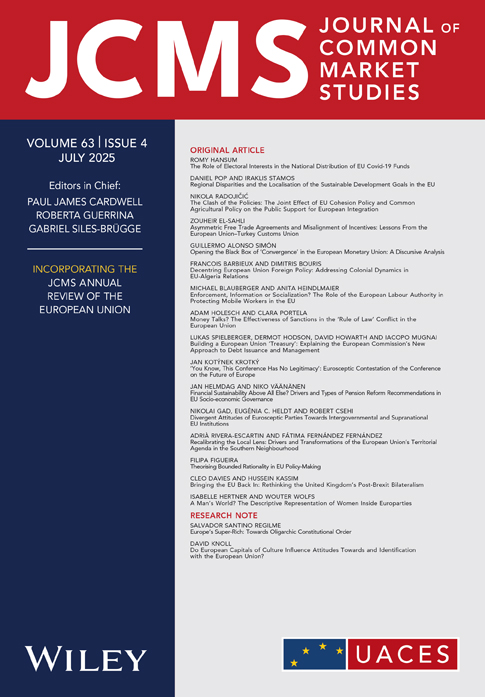Language Disenfranchisement in the European Union*
We are grateful to Michel Vanden Abeele, Director General, European Commission, for useful conversations, and to two anonymous referees of this journal, whose valuable comments and suggestions helped us to produce a much improved version. We also thank Christine Kotarakos and Rosario Spadaro from INRA for the time they spent in responding to our requests and producing new numbers from their survey on languages for the EU, and Renaud Soufflot de Magny, Directorate General Press and Communication, European Commission, who allowed us to use the data from the survey. The article was partly written while Weber was visiting the Technical University of Dresden as the Humboldt Research Prize holder. The generosity of the Alexander von Humboldt Foundation is gratefully acknowledged.
Abstract
This article introduces the notion of language disenfranchisement which arises if the number of EU working languages is reduced and some EU citizens are denied the use of their own language for official purposes. We use data on language proficiency in the EU and show that, in spite of the widespread knowledge of English, the retention of French and German as working languages is essential to avoid a high degree of disenfranchisement of EU citizens. We also argue that, even though French is the second leading language within the EU, the recent enlargement could change that situation.




